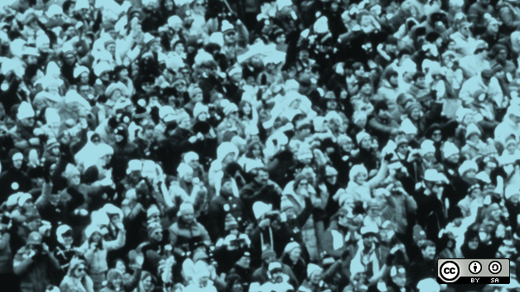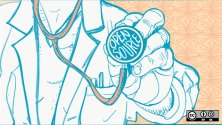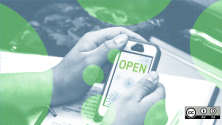People often share more about their health and medical experiences on Facebook than they do with their own doctors. They talk about their experiences with illness, their symptoms, the medications they're taking, the side effects, what works, what doesn't, even various treatment options.
It turns out this online health chatter can be a lifesaver.
In January 2007, a man named Dave deBronkart was diagnosed with Stage IV, Grade 4 renal cell carcinoma (kidney cancer). When his doctor discovered a spot on his lung (tumors that had developed from the metastasized kidney cancer), he told Dave to "go home and have a glass of wine with your wife." He researched his condition on reputable websites, official sources he felt he could trust. And what he learned on those sites was that his "prognosis was poor," his "outlook was bleak." His survival time at diagnosis was just 24 weeks. He had tumors in both lungs, several bones, and muscle tissue.
Looking to his doctor for more information, he was prescribed a patient community.
It was in his patient community that Dave realized that patients themselves are the most underutilized resource in healthcare. On this community site Dave learned about an experimental course of treatment using high dosage Interleukin. He learned what providers near him were doing this and their phone numbers, information he wasn't able to find on any of the government-sponsored or approved websites he trusted. He concluded that only patients know best what other patients want to know.
Dave participated in a clinical trial for the powerful, but severe, high-dosage Interleukin-2 (HDIL-2). His last treatment was July 23, 2007, and by September it was clear he’d beaten the disease.
Since then, Dave has joined and promoted the e-patient movement, where patients who are equipped, engaged, empowered, and enabled share their own experiences with other patients to help them lead their own courses of treatment.
Another group, the Society for Participatory Medicine, is a "networked group of patients who have shifted from being passive passengers to responsible drivers of their health."
This trend is gaining even more momentum, as Pew Internet & American Life Project shows that beyond checking email, health-related web searches are one of the most popular online activities. The Pew study showed that approximately 80% of web users in the United States actively research health topics online.
And now, businesses are starting to mine these communities and their online chatter to identify trends in symptoms, outcomes, effectiveness, and complications. PatientsLikeMe is even beginning to use these online communities to identify patients for clinical trials.
Perhaps the future of health will greatly benefit from this information sharing movement. It is empowering people through community to improve their own healthcare, and in Dave's case, is quite literally saving lives.
Related health reading
Can social communities transform clinical trials?
Sharing information to improve your health
Can open source save US health care?






4 Comments